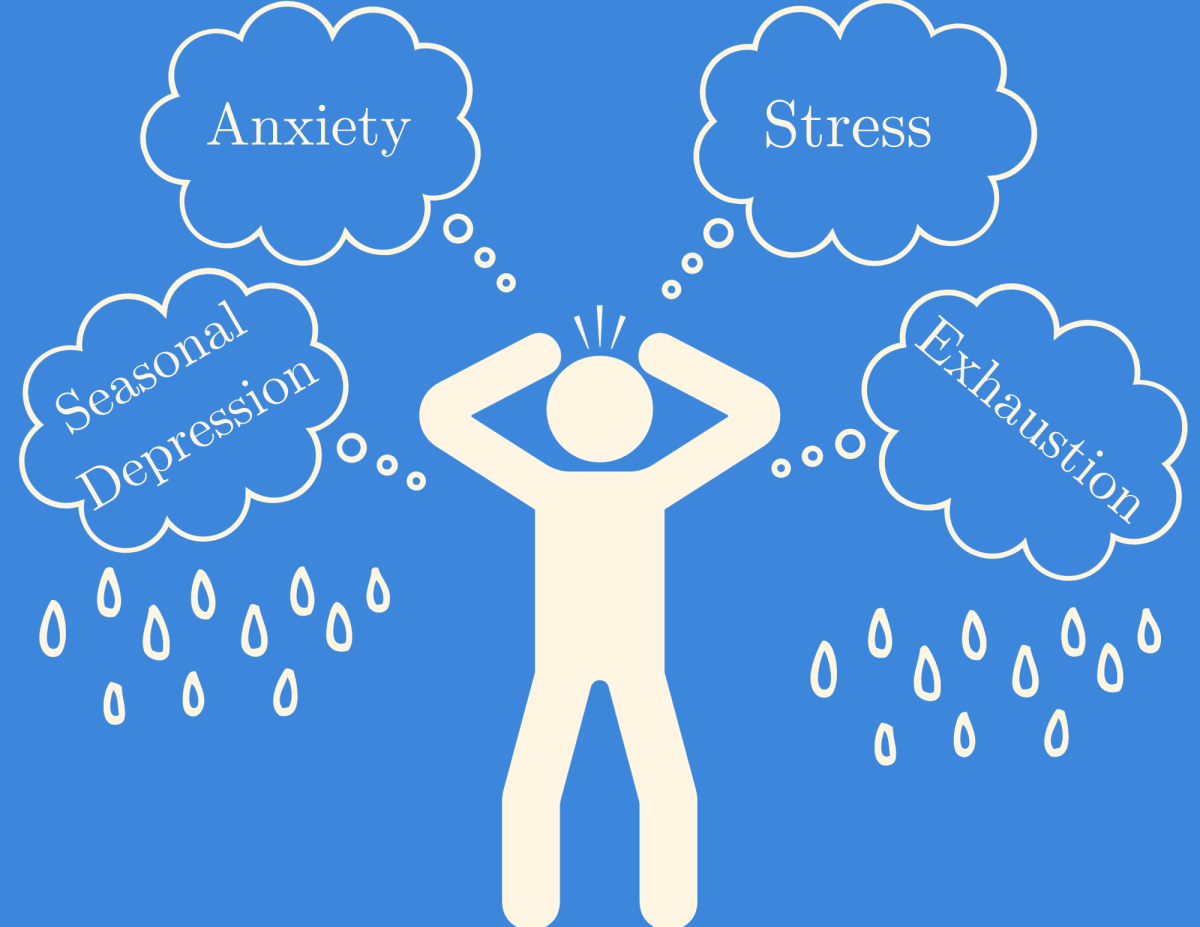Mental health has been a topic in relation to school for quite some time. Many college students tend to deal with stress, anxiety, exhaustion and even seasonal depression around wintertime and summer. Students seek advice and guidance from professors in how they can improve their own mental health and tips on how they can stay ahead of their own schoolwork.
“Obviously when we get close to finals, it’s normal for students to feel a lot of stress because their biggest assignments are coming up, there’s a lot of pressure, they’re worried about grades and some of them may have not given their best efforts early on,” said Rhonda Peterson Dealey, associate professor in social work.
This will be Peterson Dealey’s seventh year at Washburn. She practiced as a clinical social worker before she came into teaching.
“Students who are even newer to college, who are just trying to get all the things figured out and have a unique addition to stress too. Things that are new and things that are hard, of course, will cause that anxiety,” Peterson Dealey said.
In 2020, there was a huge effect on schooling all due to the pandemic. To this day, students tend to struggle getting back into that “normal” routine.
“I think we are still experiencing some of the stress and mental health struggles coming out of COVID. That was a really hard time for some folks to develop mentally,” Peterson Dealey said.
COVID-19 caused isolation for people and having to have classes virtually. This would cause no face-to-face contact with professors or even fellow students.
“I do think COVID did cause some new realities that we were just starting to climb out of, and it has led to new and interesting semesters,” said Kimberly Harrison, professor in social work.
With COVID-19 influencing students and their classes, other aspects have played along in causing students’ mental health to spiral and professors make it known that it doesn’t go unnoticed.
“I have created an evidence-based assignment where my students will essentially identify every week what their emotion is, and it is of course anonymous. I will then look at the data and graph it for the semester. If I have a bunch of students saying they’re in the ‘blue zone’ which is okay because at the end of the day, it’s an important emotion,” Harrison said.
Professors like Harrison have acknowledged the importance of mental health with their students by involving that data analysis but also being alert with emotions that their students may be portraying. There have been tell-tale signs on what they tend to look out for.
“Some of the things I try to watch for or have noticed before is changes in personality. Like someone who used to participate regularly is now being quiet. Or even someone who used to always come prepared is now not coming prepared for class,” Peterson Dealey said.
While these signs are noticed by these professors, some of them also attempt to do what they can in support of helping them focus and be more engaged with class time.
“I have let students sit however they want this semester because I have noticed a major lack of focus. I also bring coloring sheets to classrooms so they can even color if they want. But, when they totally disengage after that fact, I know there is a major issue going on,” said Tonya Ricklefs, associate professor in social work.
Ricklefs has been at Washburn for six years. With those years at Washburn, she has been able to notice many of the signs of students dealing with depression or anxiety. Along with that, she is giving tips to help them succeed.
“The main thing I think students should do is to get rid of perfectionism. Every assignment does not have to be perfect! Maybe at this moment that paper can be a ‘C’ or a ‘B’ and then rebound later. Figure out what your priorities are at that time,” Ricklefs said.
Students also have times where they may just need to talk to a faculty member about what is going on inside their heads. This could be turning to someone they trust or maybe asking a question to their professor about their assignment.
“I have an open-door policy. If any student needs to talk with me and I have stressed that a lot. I have seen a lot of students reaching out for help for not only mental health, but schoolwork. I just really try to get and know my students,” Harrison said.
Washburn provides on-campus resources for students if they need another ear to just listen to them. Professors can also help lead them in the right direction to support their needs.
“We need to let students know about the counseling center, let’s talk about more intense support and that you are not dealing with these hard situations alone,” Peterson Dealey said.
Having knowledge about tips for dealing with mental health and knowing what resources are available can help with a successful semester. Along with knowing that, professors care for their students and want to be a helpful hand in pointing them in the right direction.
Edited by Sydney Peterson and Jayme Thompson










